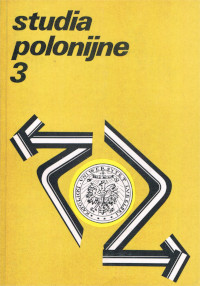Viewpoint of the Laity on Pastoral Care of Polonia: Its Hopes and Expectations
Main Article Content
Abstract
The contribution of Poles to the Catholic Church in the United States is considerable. Every 5th Catholic and every 17th parish is Polish. There are eleven Bishops and one Cardinal of Polish descent. Masses and devotions in Polish still take place in the many churches built by Poles. In secular life, particularly in organizations, Polish Catholic influence is also evident.
However, lay people feel a lack of communication and understanding on the part of parish clergy and themselves. Priests’ visits to homes and schools are infrequent. Meetings, mobility and outside activities result in less accessibility at rectories.
Bi-lingualism among priests needs to be emphasized. The Polish language is now taught in few schools but Polishness could be fostered in ways other than language if it were stimulated through active concern. Participation in Polish Masses is good though encouragement is sometimes lacking. Polish customs survive in varying degree.
Polishness in principally retained in declining old neighborhoods. In suburban parishes concern is minimal, though people still tend to live among those of similar ethnic background. U. S. Polonia is spreading and there is increasing need for pastoral care. Some localities have succeeded in establishing Polish „mission” churches.
Faced with injustice Polonia sometimes asserts itself through petitions, demonstrations and letters (or through the pocket book). Polish clergy is still discriminated against by the hierarchy and the laity would like this, too, to be corrected.
Polish Americans cherish Catholic faith. They love, respect and support their clergy. If the many positive factors of Polish heritage are to continue enriching the Church in America, pastoral initiative and leadership are imperative.
„Liberty and Justice” was the American motto used by Catholic hierarchy during the U. S. Bicentennial. This is also a Catholic ideal, enunciated by the Vatican. It needs to be directed on behalf of Polonia. Mutual understanding and cooperation between Polish American laity and its clergy would help correct past inequities and could provide the unity which Polonia so greatly needs.

